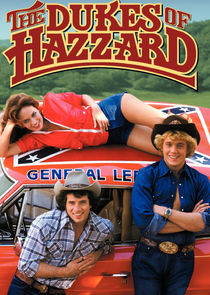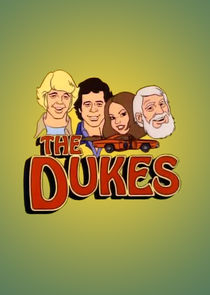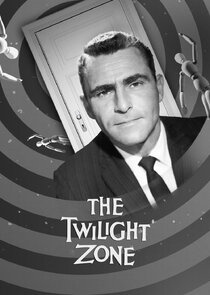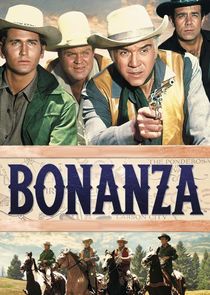The youngest of eight brothers and a sister, James was born Jewel Franklin Guy in hardscrabble Powderly, Ky., on July 26, 1926, to parents Lena Mae Everly Guy (sister of Ike Everly, who was father of musical legends Don and Phil) and Larkin Jasper Guy. After spending a short time in an orphanage following his mother's death in 1929, the young boy was adopted by Essa and Armen Best and moved with them to their home in Corydon, Ind.
When his adoptive parents asked what name he wanted to be called, young Jewel said, "Jimmie," likely a toddler's recollection of the name of one of his older brothers. Jimmie's adoptive father taught him boxing skills, marksmanship with assorted firearms and a lifelong passion for fishing and the outdoors. During his youth, Jimmie also sacked groceries at the local Kroger with a future governor of Indiana (Frank O'Bannon), was a Boy Scout and acted in his first play, A Connecticut Yankee in King Arthur's Court.
Jimmie's experiences and observations as a boy growing up in the Great Depression would later be inspiration for his writing the play Hell-Bent for Good Times, which he also produced, directed and starred in with leading lady Peggy Stewart to rave reviews from Atlanta to Los Angeles. Jimmie also adapted the play for the screen and had even filmed some sample scenes for his Best Friend Films production company.
While ideas for future creative works percolated, Jimmie, fresh out of high school in 1944, enlisted in the U.S. Army Air Corps with dreams of being a pilot. But the Air Corps at that point needed gunners and radio operators more than pilots, so Jimmie trained for those duties instead. Once most of the enemy's aircraft were out of commission and there was less need for him to be fighting in the sky, Jimmie was transferred to the military police to help handle dangerous problems on the ground in Germany. Many of Jimmie's experiences as an MP contending with the Werwolf resistance in Germany during the war were incorporated into Samuel Fuller's acclaimed 1959 film Verboten! in which Jimmie starred as Sergeant David Brent.
It was during his real wartime on the ground in Germany that Sergeant Best became enlightened about how servicemen who entertained the troops as part of Special Services were given better food and living quarters and, most important, got to travel and socialize with the pretty actressesin those units. And he noticed that the folks in Special Services also generally didn't have people shooting at them.
Jimmie used his stellar record with the military police as leverage to join the military theatrical company. His first role was playing a drunk in director Arthur Penn's production in Germany of My Sister Eileen. Jimmie's show business career was now officially locked and loaded.
After the war, Jimmie had stars in his eyes and headed to New York City with visions of Broadway. He ended up honing his acting skills in winter stock and summer stock productions. He also did some fashion modeling, which got him noticed by an influential Hollywood casting director. That led to Jimmie's leap to Hollywood as a contract player for Universal Studios, where Tony Curtis, Rock Hudson, Shelley Winters and war hero Audie Murphy were among the group of budding contract players with Jimmie at the time.
Jimmie stayed busy in lots of films, including classic westerns with movie legends who would become friends, such as James Stewart (four films together, including Winchester '73) and Paul Newman (two films, includingThe Left-Handed Gun, which was also a nice reunion for Jimmie with director Arthur Penn). Mr. Stewart, as Jimmie always referred to him, was Jimmie's icon and mentor. They became great friends. Jimmie's prize possession was the framed sketch that Mr. Stewart drew for him of Harvey the rabbit. Jimmie called it his Oscar. Farther from Oscar, Jimmie also starred in purely popular fare during this period, including a Ma and Pa Kettle film, as well as one with Francis the Talking Mule.
Jimmie himself could be mule-like—that is, hard-kicking, ornery and stubborn. Jimmie's storied reputation as a renegade eventually led to his essentially being prematurely turned out to pasture at Universal, while also being considered too hot to handle by other studios, with one key exception. Gene Autry gave Jimmie good work when he needed it most. Jimmie was soon back working steadily, first on Autry's TV show and then for many others. He performed in hundreds of episodes for TV, including iconic roles in multiple installments of hits such as "The Twilight Zone," "Alfred Hitchcock" and "The Andy Griffith Show."
Jimmie's work with Jerry Lewis on a 1965 episode of TV's "Ben Casey" led to more work with Lewis (including Three on a Couch) and a long friendship filled with laughs, not a little tomfoolery and some fishing. Likewise, Jimmie first worked with Burt Reynolds in a 1963 episode of "Gunsmoke." Their friendship and appreciation of each other's work led to later collaboration on film (including Hooper) and theater projects and many legendary adventures.
Jimmie's natural curiosity and creative energy were qualities that always made him an interesting person to work with and just to be around. He was a prolific and respected painter of oils and watercolors. He was a black belt in karate. He also founded a highly regarded school of motion-picture technique for actors, which he operated in various forms and locations for more than 25 years. (Students included Lindsay Wagner, Roger Miller, Glen Campbell, Quentin Tarantino and Regis Philbin.) His expertise not only in writing, directing and performing in plays and films but also in teaching acting technique led to his being named artist in residence at the University of Mississippi during an "escape" from Hollywood in the early 1970s. He also taught acting and film technique at the University of Central Florida.
He returned to Hollywood in the 1970s to work on camera and behind the scenes on a string of hit films, including Best Picture nominee Sounder, Ode to Billy Joe and three with Burt Reynolds. But what happened next was as unexpected as it was stupendously successful. Lured both by the prospect of filming a TV series in prime fishing country in Georgia and by the chance to work with old pal Denver Pyle, Jimmie agreed to work on a mid-season replacement series for CBS called "The Dukes of Hazzard."
If there were ever any question that the cool, dashing and sometimes rough-edged actor of dozens of gritty westerns and war films could be believable in a comedy, the answer came in 1979 in the person of Sheriff Rosco P. Coltrane, which would become the signature role of Jimmie's long Hollywood career. In many ways, it was an ironic yet natural fit for Jimmie, the fabled Hollywood rebel, to comically portray a character who is a blundering fool at trying to enforce laws and outwit rural rule-benders like "those Duke boys."
Throughout the decades that followed its seven-season run and two reunion movies, "Dukes" continued to keep Jimmie busy with reunions and personal appearances at festivals and fan gatherings. Through the enormous viewership of "Dukes" reruns, the popularity of the show has now spanned several generations of fans.
Keenly devoted to dogs and an advocate for their humane treatment, Jimmie was always especially thrilled to meet fans who, as homage to Rosco's beloved basset hound Flash, brought their own basset hounds to meet Jimmie, who kept some "doggie num nums" handy to offer as treats. Jimmie reveled in the enthusiasm for the show that was displayed by fans of all ages, many of whom were also among the ardent admirers of his paintings, most of which depict the great outdoors and rustic subjects, including, in recent years, some inspired by "Dukes."
Even while happily satisfying the huge public demand to see and meet Rosco, Jimmie continued with his passion for writing (including songs, poems, plays and screenplays), producing, directing and performing for stage and screen. His skills and taste ranged from solemn to silly and from heartfelt to campy. The common denominators were his passion, talent, true grit, genuine wit and boundless work ethic.
There is perhaps no better example of his persistence than his dream pet project of producing a sequel to The Killer Shrews, the 1959 cult horror classic in which Jimmie starred. Jimmie's dream came true with the 2012 release of the nightmarish Return of the Killer Shews, with Jimmie not only reprising his original role, but also helping to develop and write the film over a period of years. It is a movie that never would have been made without Jimmie and wife Dorothy's sheer force of will that it simply must be done. It was just too obvious of a chance for some great fun for everybody involved.
Once again showing his wide range, Jimmie's last completed film was 2013's The Sweeter Side of Life, a tender movie for Hallmark that was written and produced by daughter Janeen Damian and her husband, Michael, who also directed. And back on stage, James won a Best Actor award for a 2014 production of On Golden Pond. At the time of his death, he also was scheduled to star in Old Soldiers, a feature film about World War II veterans that was set to begin filming this year. And he was hard at work on co-writing a screenplay about the Civil War.
Jimmie was always totally present in whatever he was doing. He was also always eager to see what interesting experiences he could get into next. He had the perspective and wisdom that comes with a long life lived to the fullest. As he wrote in his 2009 autobiography, Best in Hollywood: The Good, the Bad and the Beautiful, "The only thing that makes me sad about having so little time left is leaving the people I love and those who love me. There are also films and other projects that I want to get done, and there are always fish that need catching."
Realizing full well that he had lived a charmed life and that he was blessed to have been able to follow his rainbow, Jimmie looked forward to still more opportunities to embrace life with his legendary gusto. As he stated at the end of his autobiography: "God be willing, maybe I will touch my rainbow one more time before He takes my hand and leads me to eternity."
As full and accomplished as Jimmie's professional career was, family and friends made his life complete. In 1986, he married actress Dorothy Collier, the love of his life and partner in all things for several years before their marriage and his beloved wife for the next 29 years, until his passing. He is also survived by son Gary Allen Best and wife Angela, daughter JoJami Best Tyler and husband Eric, and daughter Janeen Damian and husband Michael Damian; and by grandchildren Lauren Best, Cameron Tyler and Tessa Tyler.






